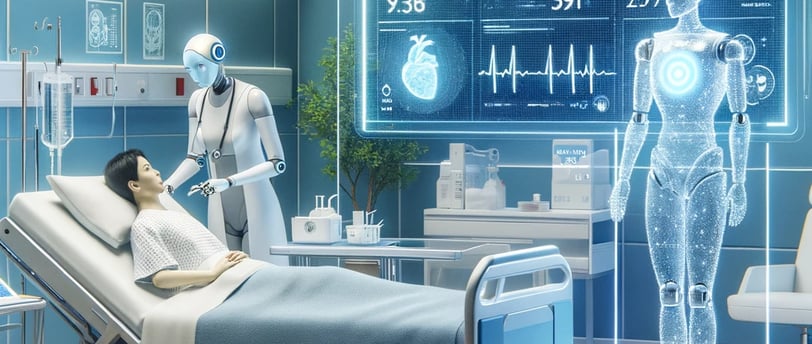The Role of AI in Revolutionizing the Healthcare Industry
How AI is revolutionizing healthcare.


In recent years, Artificial Intelligence (AI) has emerged as a powerful tool with the potential to revolutionize various industries. One such industry that has been significantly impacted by AI is healthcare. The integration of AI technologies in healthcare has the potential to enhance diagnostics, improve patient care, and revolutionize medical research. In this article, we will discuss how AI is transforming the healthcare industry and the benefits it brings.
Enhancing Diagnostics
Accurate and timely diagnosis is crucial for effective treatment and patient outcomes. AI has the ability to analyze vast amounts of medical data and assist healthcare professionals in making more accurate diagnoses. Machine learning algorithms can be trained to recognize patterns and identify potential diseases or abnormalities in medical images such as X-rays, MRIs, and CT scans.
By leveraging AI, healthcare providers can reduce the risk of human error and improve the efficiency of diagnostic processes. AI-powered diagnostic tools can quickly analyze medical images and provide preliminary results, allowing healthcare professionals to prioritize urgent cases and make informed decisions. This not only saves time but also improves patient outcomes by enabling early detection and intervention.
Improving Patient Care
AI has the potential to transform patient care by personalizing treatment plans and improving patient monitoring. With the help of AI-powered algorithms, healthcare providers can analyze patient data, including medical history, genetic information, and lifestyle factors, to develop personalized treatment plans.
AI can also assist in remote patient monitoring, allowing healthcare professionals to keep track of patients' health conditions outside of traditional healthcare settings. Wearable devices equipped with AI algorithms can collect real-time patient data, such as heart rate, blood pressure, and glucose levels. This data can be analyzed to detect any deviations from normal patterns and alert healthcare providers to potential health risks.
Furthermore, AI-powered chatbots and virtual assistants can provide patients with personalized healthcare information, answer their queries, and offer support. These virtual assistants can help patients manage chronic conditions, remind them to take medication, and provide guidance on healthy lifestyle choices.
Revolutionizing Medical Research
AI is also revolutionizing medical research by enabling faster and more accurate analysis of large datasets. In the era of big data, AI algorithms can process vast amounts of medical information, including electronic health records, clinical trials data, and scientific literature.
AI can identify patterns and correlations in these datasets that may not be easily detectable by human researchers. This can lead to new insights and discoveries, helping researchers develop more effective treatments and interventions. AI can also assist in the identification of potential participants for clinical trials, matching patients with specific criteria to the appropriate studies.
Additionally, AI can accelerate drug discovery and development processes. By analyzing molecular structures and predicting the effectiveness of potential drug candidates, AI algorithms can help researchers identify promising compounds and reduce the time and cost required for drug development.
Conclusion
The integration of AI in the healthcare industry has the potential to transform diagnostics, patient care, and medical research. By enhancing diagnostic accuracy, AI can enable early detection of diseases and improve patient outcomes. Personalized treatment plans and remote patient monitoring powered by AI can improve patient care and enable proactive interventions. Moreover, AI can revolutionize medical research by analyzing large datasets and accelerating drug discovery processes.
However, it is important to note that while AI has great potential, it should be implemented ethically and responsibly. Data privacy and security concerns, as well as the need for human oversight, should be carefully addressed. With the right approach, AI can truly revolutionize the healthcare industry and improve the lives of millions of people.
